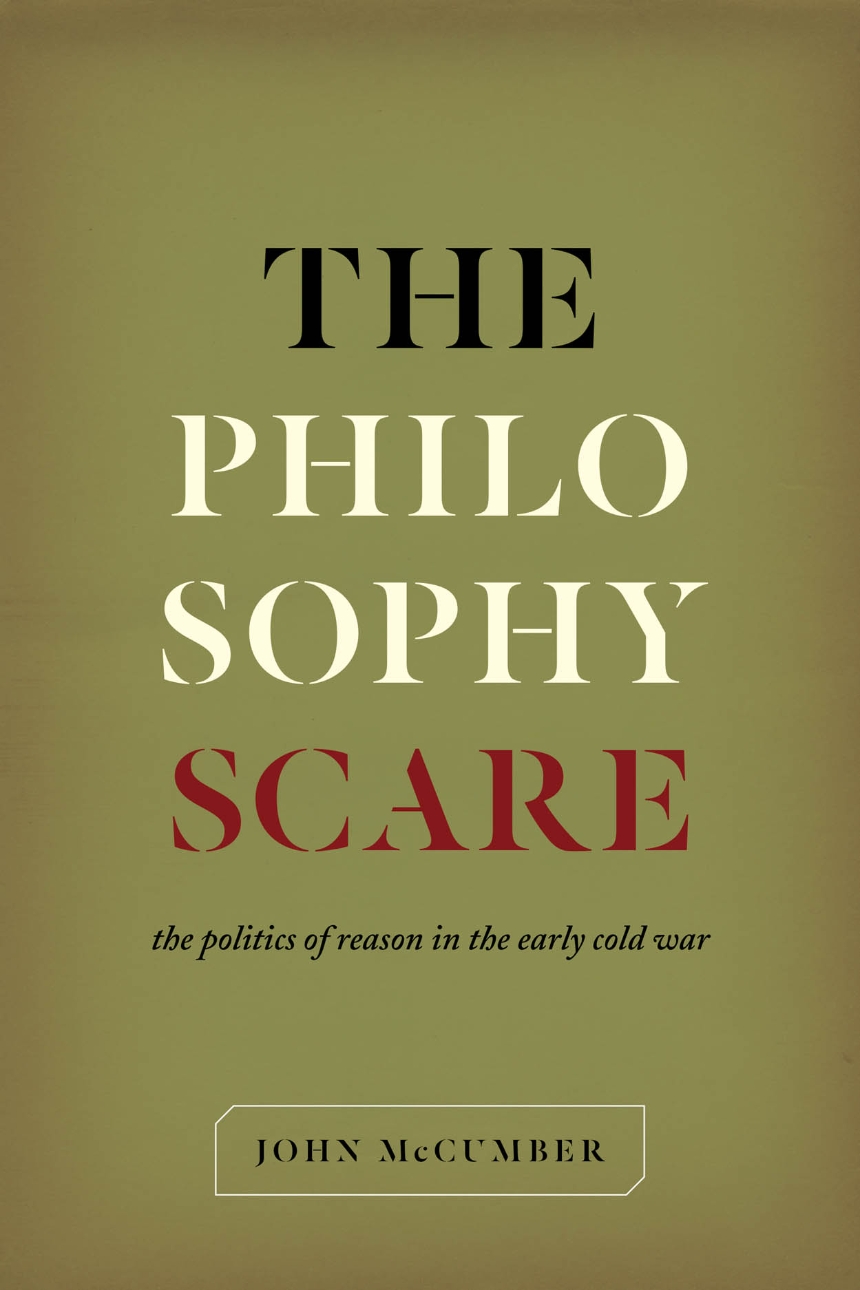The Philosophy Scare
The Politics of Reason in the Early Cold War
From the rise of formalist novels that championed the heroism of the individual to the proliferation of abstract art as a counter to socialist realism, the years of the Cold War had a profound impact on American intellectual life. As John McCumber shows in this fascinating account, philosophy, too, was hit hard by the Red Scare. Detailing the immense political pressures that reshaped philosophy departments in midcentury America, he shows just how radically politics can alter the course of intellectual history.
McCumber begins with the story of Max Otto, whose appointment to the UCLA Philosophy Department in 1947 was met with widespread protest charging him as an atheist. Drawing on Otto’s case, McCumber details the hugely successful conservative efforts that, by 1960, had all but banished the existentialist and pragmatist paradigms—not to mention Marxism—from philosophy departments all across the country, replacing them with an approach that valorized scientific objectivity and free markets and which downplayed the anti-theistic implications of modern thought. As he shows, while there have since been many instances of definitive and even explosive rejection of this conservative trend, its effects can still be seen at American universities today.
McCumber begins with the story of Max Otto, whose appointment to the UCLA Philosophy Department in 1947 was met with widespread protest charging him as an atheist. Drawing on Otto’s case, McCumber details the hugely successful conservative efforts that, by 1960, had all but banished the existentialist and pragmatist paradigms—not to mention Marxism—from philosophy departments all across the country, replacing them with an approach that valorized scientific objectivity and free markets and which downplayed the anti-theistic implications of modern thought. As he shows, while there have since been many instances of definitive and even explosive rejection of this conservative trend, its effects can still be seen at American universities today.
224 pages | 6 x 9 | © 2016
Philosophy: American Philosophy, General Philosophy, History and Classic Works
Political Science: Political and Social Theory
Reviews
Table of Contents
List of Abbreviations
Prologue
Introduction
Part 1 The Cudgels of Freedom: Cold War Philosophy’s Theory of Objects
1 Academic Stealth in the Early Cold War
2 Reductionism as the Favored Form of Naturalism
Part 2 The Carrots of Reason: Cold War Philosophy’s Theory of Subjects
3 The Politics of Rational Choice
4 Rational Choice Philosophy as “Scientific Philosophy”
Part 3 Purifying the Academy
5 Organizing Academic Repression: The California Plan
6 Rationalizing Academic Repression: The Allen Formula
Epilogue: The Two Fates of Cold War Philosophy
Appendix: Roster of UCLA Philosophy Department from 1947–48 to 1959–60
Acknowledgments
Notes
References
Index
Prologue
Introduction
Part 1 The Cudgels of Freedom: Cold War Philosophy’s Theory of Objects
1 Academic Stealth in the Early Cold War
2 Reductionism as the Favored Form of Naturalism
Part 2 The Carrots of Reason: Cold War Philosophy’s Theory of Subjects
3 The Politics of Rational Choice
4 Rational Choice Philosophy as “Scientific Philosophy”
Part 3 Purifying the Academy
5 Organizing Academic Repression: The California Plan
6 Rationalizing Academic Repression: The Allen Formula
Epilogue: The Two Fates of Cold War Philosophy
Appendix: Roster of UCLA Philosophy Department from 1947–48 to 1959–60
Acknowledgments
Notes
References
Index
